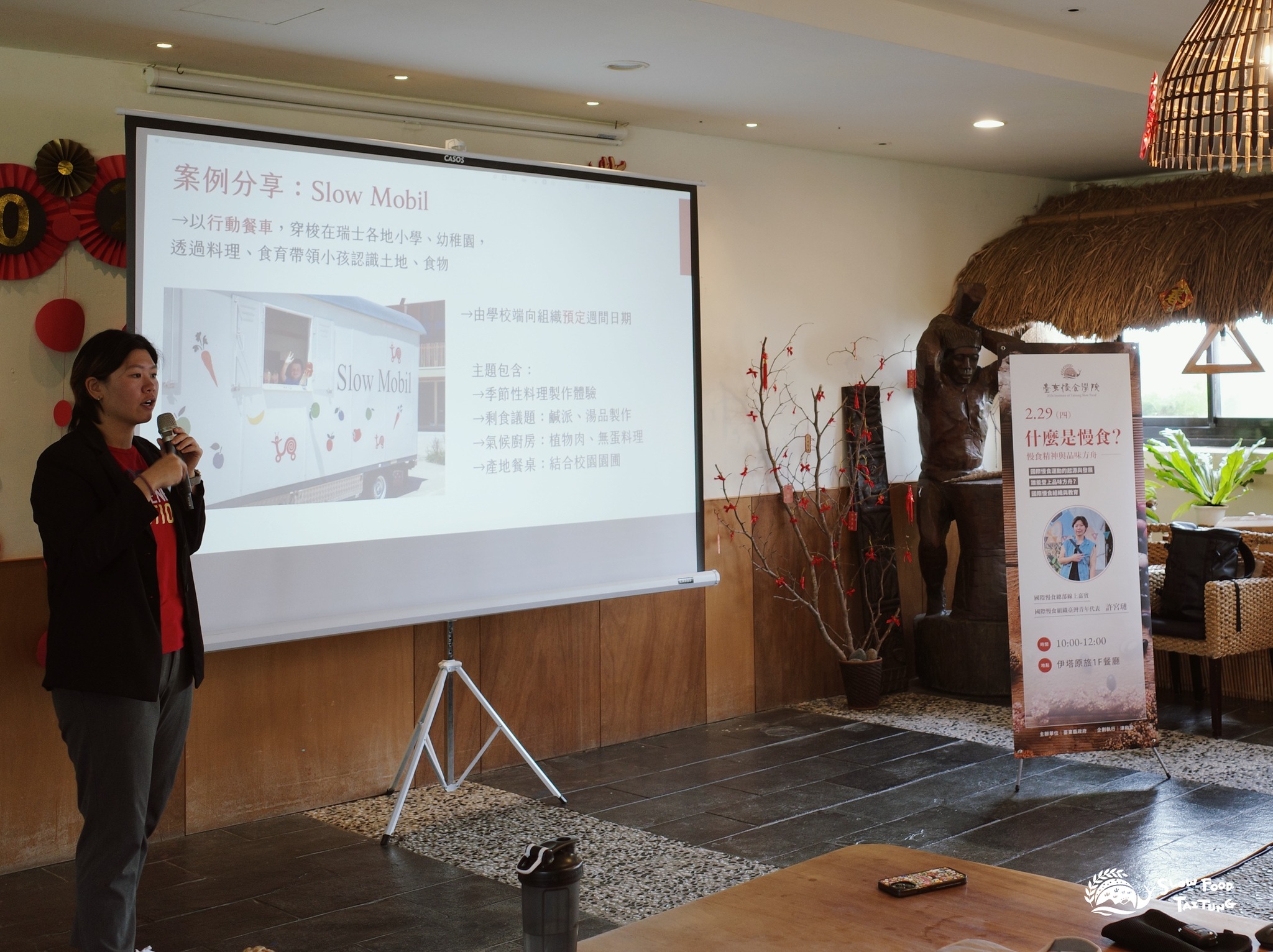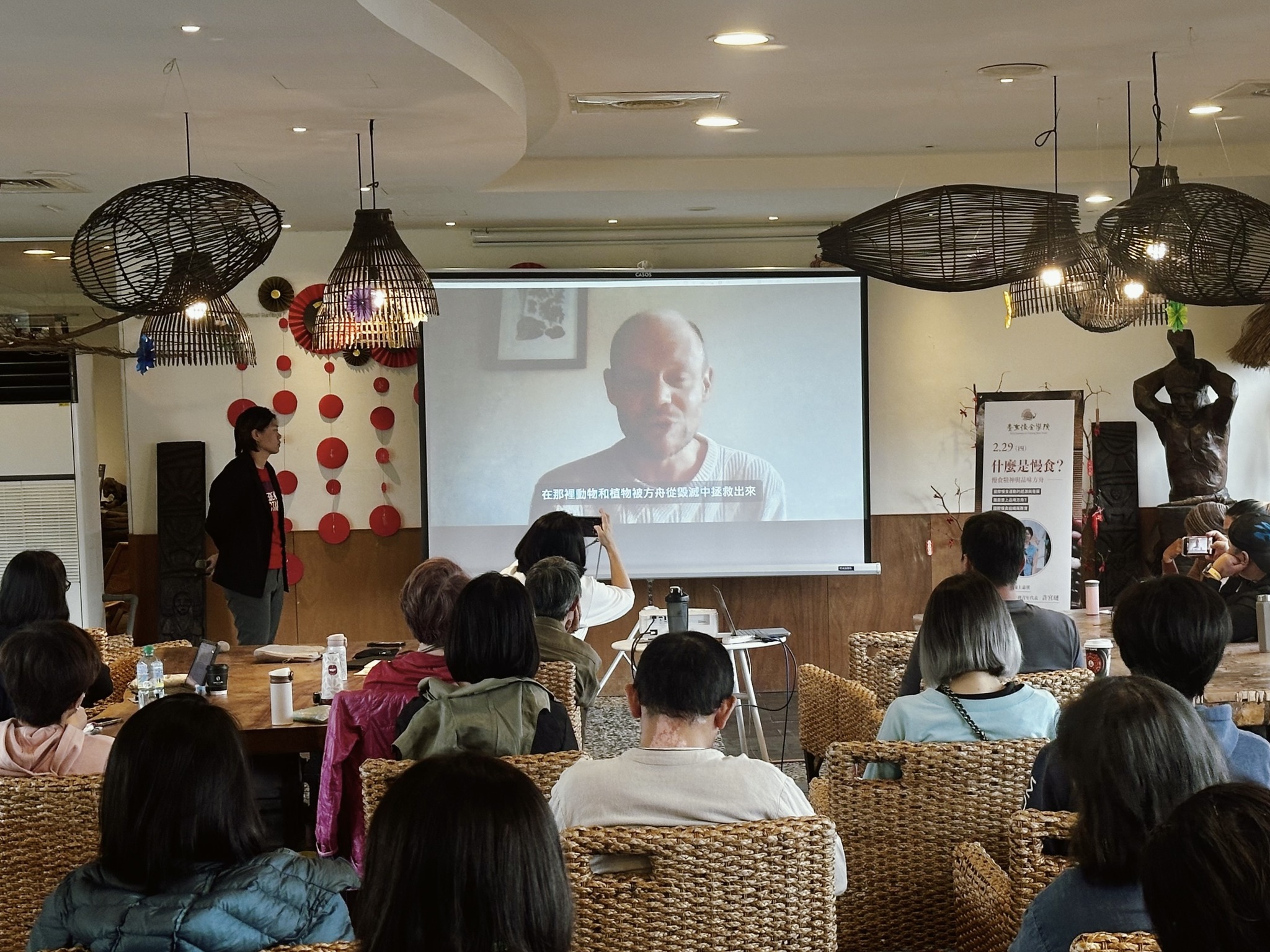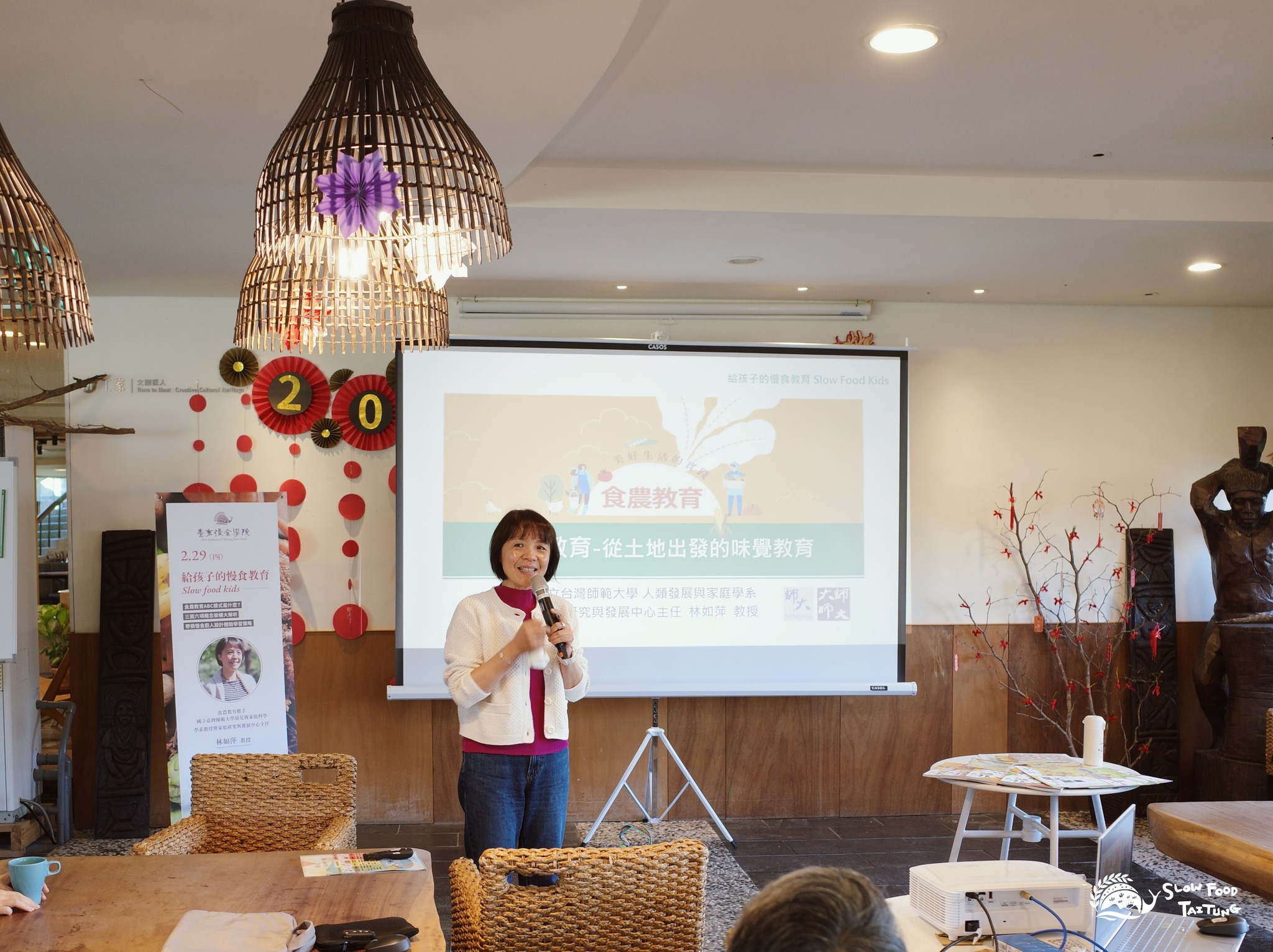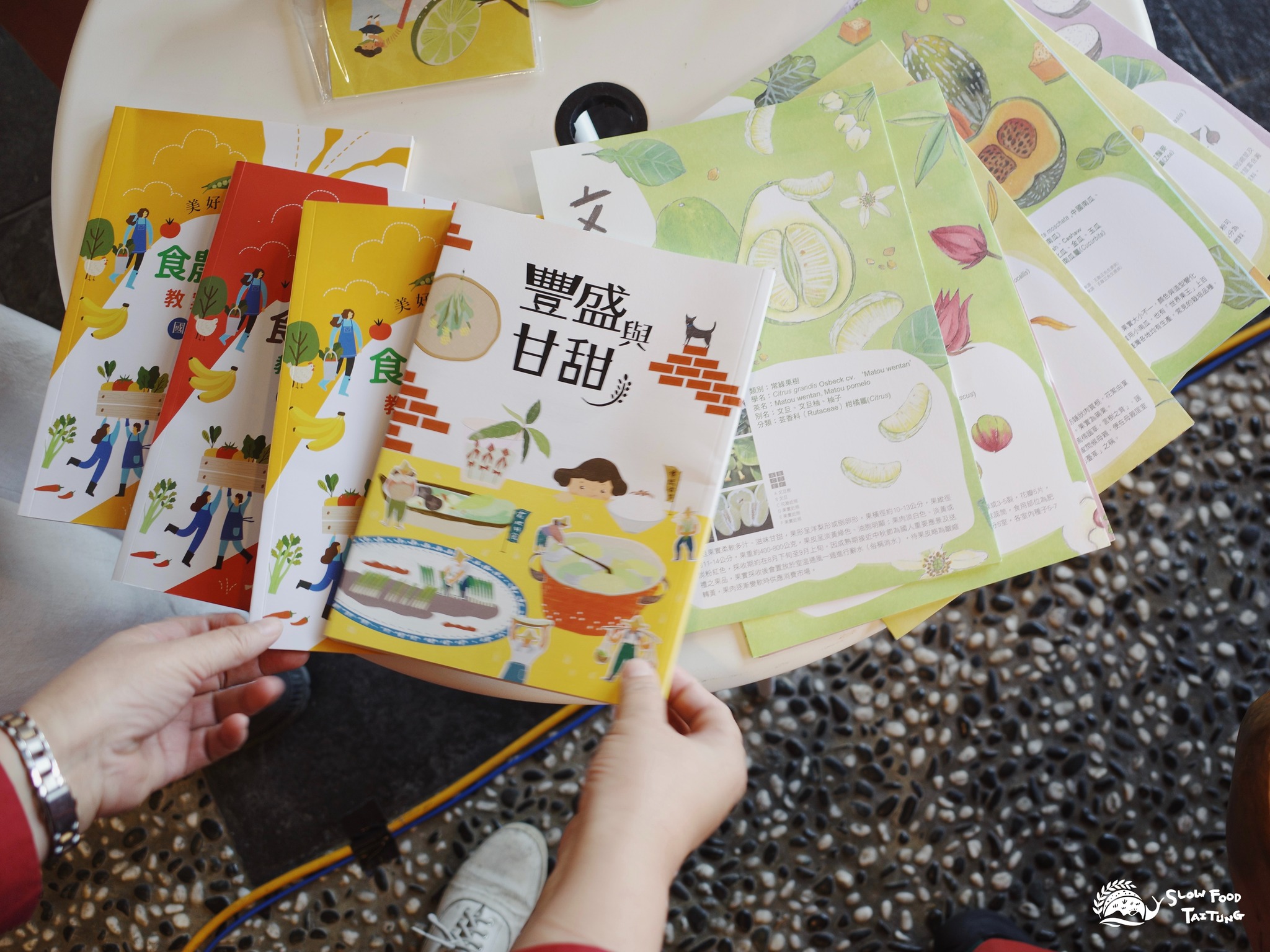Cultivating the future of food: Insights from the Institute of Taitung Slow Food Workshop
Phtoto慢食臺東
Article慢食臺東
Date:2024.03.01
The Institute of Taitung Slow Food recently hosted an enlightening workshop themed "Slow Food and Food Education" offering profound insights into the essence of Slow Food and its pivotal role in shaping sustainable food systems. Attendees were treated to an enriching discourse led by esteemed speakers, Kung-Lien Xu (許宮璉) and Ju-Ping Lin (林如萍), who delved into the fundamental principles of Slow Food and its significance in education, culture, and preservation.
Understanding Slow Food: Preserving Diversity for Future Generations
Kung-Lien Xu, a representative from the Slow Food Youth Network, kicked off the morning session by elucidating the core tenets of Slow Food: "Good, Clean, and Fair". Emphasizing the imperative to defend biodiversity and cultural diversity, Xu highlighted various initiatives such as the Art of Taste, Presidia, and the Taiwan Indigenous Cook's Alliance. The "Ark of Taste," highlighted as a pivotal platform, connects food producers, consumers, and tradition bearers. Daniel Cruse from Slow Food International elaborated on the inclusion criteria and nomination process via video. Then, Xu drew inspiration from Slow Food Negros' efforts in promoting Slow Food Travel, showcasing the impact of community-driven initiatives. Attendees gained insights from global Slow Food communities, emphasizing the transformative role of Slow Food Education in sustainable gastronomy.

Kung-Lien Xu, a representative from the Slow Food Youth Network

During the course, there was also a special guest—the project manager of the Ark of Taste—who remotely explained the origins of the project and how to participate.
Empowering the Next Generation: Slow Food Education for Kids
In the afternoon session, Ju-Ping Lin took the stage to delve into the intricacies of food education, highlighting its significance in cultivating mindful eating habits and nurturing a deeper connection to food systems. Lin introduced the ABC aspects of food education: Agriculture, Behavior, and Culture. Using compelling examples, such as Japan's school lunch boxes brimming with seasonal and local delicacies, Lin emphasized the profound impact of food education on shaping dietary behaviors and fostering cultural appreciation among children. She urged food educators to utilize various mediums to promote food education within the Taitung Slow Food community, stressing the value of experiential learning and hands-on engagement. Lin's insights resonated strongly with the audience, inspiring them as they prepare for the upcoming Slow Food Festival: Food Education Feast.
Planting Seeds for a Sustainable Future
The workshop ended on a high note, leaving participants energized and eager to delve deeper into the Slow Food movement. With newfound knowledge and inspiration, they pledged to advocate for sustainable food practices, preserve culinary traditions, and educate future generations.

The second course of the Slow Food Academy invited Lin Ruo-ping, a key promoter of food and agricultural education in Taiwan. With her rich teaching experience and numerous examples, she explained how to integrate the concepts of Food, Fun, and Conversation into daily life to cultivate children's ability to make food choices.

n addition to the rich course content, the teacher also brought many colorful food education materials for everyone to browse. These engaging materials are used to teach children how to cultivate the ability to make correct food choices.










